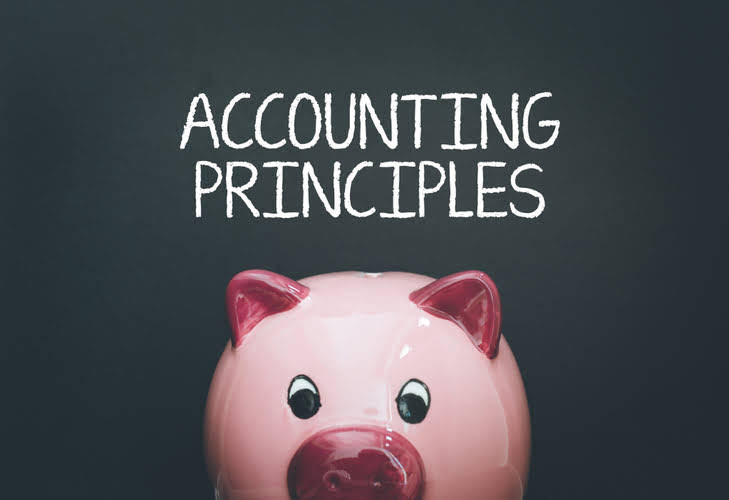How to Hire an Accountant

Accountants are worth the cost for their tax planning assistance alone. In many cases, they’ll help you find numerous deductions you never knew about. Their tax knowledge, coupled with the financial planning they bring to the table, will likely help your business unearned revenue in the short and long term.
- AI can assess several resumes quickly, providing insights to guide your selection process.
- Gain access to HR, Finance/Accounting and Systems secrets from a team that has helped hundreds of companies grow up.
- When hiring an accountant, look for candidates with a bachelor’s degree in accounting or finance, relevant certifications like CPA or CMA, and experience in your industry.
- Andrew Lokenauth has over 15 years in leadership roles across Wall St., tech, and start-ups, having held roles at Goldman Sachs, Citi, and JPMorgan Asset Management.
- You may also invest financially in the company and, above all, you’ll feel the stress of building and running a firm from the ground-up.
- Based on data from major cities, the average salary range for accountants is between 247,034 PHP to 924,390 PHP per year.
Send a skills assessment to all candidates
- On the other hand, if your business is structured as an S or C corporation, you’re paying dividends to shareholders as well as processing payroll for employees.
- At this moment, most business owners will need to hire an accountant to ensure everything is meticulously planned and paid for.
- The process involves hiring qualified employees, ensuring continuous professional development, and fostering a strong company culture.
- Some accountants charge by the hour, which can range from $100 to $300 per hour or more, while others may offer flat rates for specific services, such as tax preparation or bookkeeping.
- Insurance providers offer different levels of coverage based on the firm’s size, client base, and risk exposure.
Insurance providers offer different levels of Restaurant Cash Flow Management coverage based on the firm’s size, client base, and risk exposure. Engaging with an insurance broker experienced in the accounting industry can help tailor a suitable policy. Risk management is a pivotal component in setting up an accountancy practice. It involves implementing strategies to safeguard against potential threats that could jeopardize the business.
Accountant expectations for small businesses
- Look for reviews or testimonials from previous clients, and ask for references.
- Check out our “Complete Accounting Dictionary for HVAC Companies”—a helpful guide to understanding key accounting and bookkeeping terms.
- Your goal should be to understand how much everything will cost at the end of the year, based on their rates and payment method.
- The accountant will most likely know best practices, but if there’s a certain report you’re after, this is the perfect time to put it on their radar.
- There may be an exceptional accountant who’s already working with partners you know and trust.
- The executive summary provides a high-level overview of the business plan.
- The choice of services must reflect the market needs and the firm’s capabilities, ensuring high-quality delivery.
But you can also generate paid advertisements to target specific audiences and make the process even more effective. Your next step will be to post online to advertise the fact that you’re looking for an accountant. Here, you can use the plethora of social media channels your business should have at its disposal. Say what your ideal candidate will be without sounding like you’re trying to find a unicorn (even if you are).
Firm of the Future

By analyzing competitors, an accounting practice can discover service gaps to exploit. Understanding client demographics and preferences is vital for tailoring services. This research guides pricing strategies and helps shape marketing efforts. Utilizing data from surveys, industry reports, and client feedback can provide actionable insights to refine business strategies. Identifying niche markets, such as small businesses or specific industries, can further sharpen the practice’s focus. These systems also help business owners monitor financial health in real-time, establish budgets, and streamline year-end tax preparation.
Timesaving tips for your practice: A guide for your tax firm

Creating a detailed business plan is crucial for establishing a successful accounting practice. This foundation will guide every decision, from operational strategies to financial management and market targeting. The information herein is general and educational in nature and should not be considered legal or tax advice. Tax laws and regulations are complex and subject to change, which can materially impact investment results.

Check Credentials
Accountants are responsible for setting up bookkeeping and accounting systems for your business. A good accounting system helps you make forecasts, evaluate profitability, and set reasonable prices. Tracking budgets, predicting trends, determining breakevens, and monitoring costs and expenses are all tasks that they can help you manage. If your business has outgrown spreadsheets or fallen behind on its accounting tasks, it might be time to hire a professional.

Understand the Different Types of Accountants
Payroll companies often offer scalable, affordable services, while accountants can provide comprehensive support without the need for a full-time, dedicated financial team. Additionally, outsourcing these functions reduces overhead costs related to employee benefits, training, and technology infrastructure. The cost of hiring an accountant can vary widely depending on the services you need, the complexity of your financial situation, and the how to hire an accountant accountant’s experience level. Some accountants charge by the hour, which can range from $100 to $300 per hour or more, while others may offer flat rates for specific services, such as tax preparation or bookkeeping.
